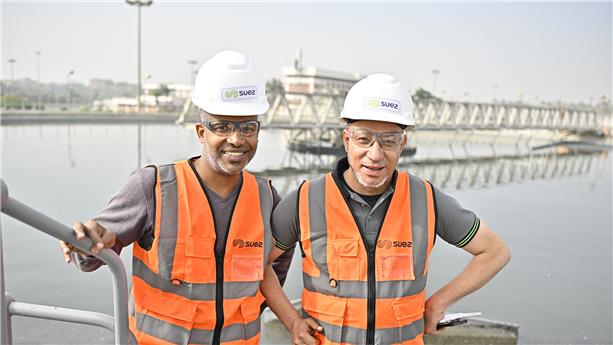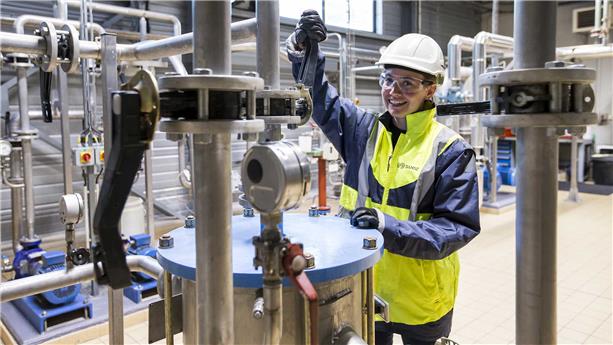Why is SUEZ interested in CCUS?
SUEZ is working on CCUS for three main reasons:
To limit the impact of CO2-emitting infrastructure
The waste processing and recovery plants that we own, as well as those we operate for our clients, all produce CO2. This ranges across all aspects of our business including energy-from-waste (EfW) facilities, refuse-derived-fuel (RDF) boilers, anaerobic digesters, waste storage facilities, waste water treatment plants, etc.
We operate across the whole value chain, taking action to prevent and reduce waste to minimise CO2 emissions at the source. For the waste that we process after these efforts, energy efficiency measures are used at our facilities to further reduce our CO2 emissions.
Once we have used all available methods to avoid and reduce emissions, we have the potentiel to implement solutions to capture the residual CO2 resulting from our processes. We can then store that CO2 or use it in numerous applications. By using CCUS, we aim to achieve a long-term reduction in our residual CO2 emissions, while also helping communities to reduce their emissions.
CO2 as a resource
We are exploring various innovative ways of recovering and recycling CO2. Primarily for the decarbonisation of transport through the production of alternative low carbon fuels. Further applications include use in the food industry, chemical production, mineralisation, etc. as an alternate to CO2 produced by burning fossil fuels.
Biogenic CO2 present in the exhaust gases of EfW facilities and in the biogas produced by anaerobic digestion is particularly sought after for these applications.
Tighter regulations regarding CO2 from waste processing
Laws on CO2 emissions are changing rapidly, and EfW facilities may soon be included in Emissions Trading Systems (ETS). In Europe, this could take place by 2028-2031, and in the UK, it is scheduled to happen in 2028. Accordingly, if EfW facilities do not take steps to reduce emissions, both upstream and downstream, their waste processing costs will increase significantly. SUEZ is anticipating these regulatory changes by exploring CCUS as a way of supporting our transition and the transition of our clients in the most effective way, and to offer clients alternative solutions for reducing the carbon emissions of their EfW facilities.





